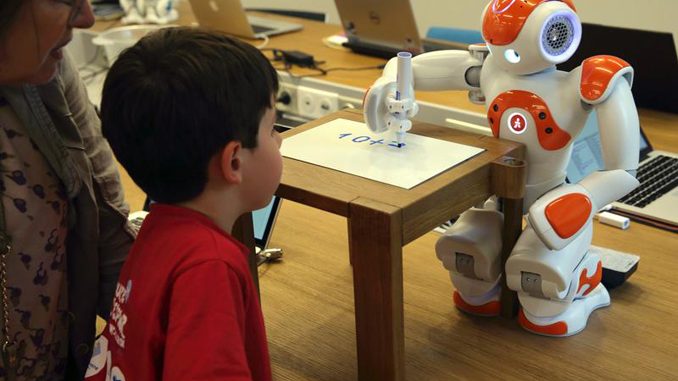
It is well known that children who develop arithmetic skills at a young age are more likely to be successful in science, technology, engineering, and math subjects when they are older. It is also known that parents have a strong influence on their child’s ability to develop these skills.
For instance, children whose parents frequently ask things such as, “You have four pennies… how many would you have if I gave you two more?” are more likely to be successful in math classes and math-related careers later on. But, what is less well known is the fact that spatial reasoning has an impact on these mathematical abilities as well.
What is spatial reasoning?
Spatial reasoning is the ability to generate, retain, retrieve, and transform visual images in our minds. For instance, adults with more advanced spatial reasoning skills are more likely to park in a parking spot correctly the first time, or perfectly pack a compact car trunk full of luggage, leaving no wasted space. Spatial reasoning is how we move shapes about within our minds. And, as it turns out, spatial reasoning is also a fundamental skill that assists us in solving both arithmetic and complex mathematical problems.
When we visualize numbers on a number line, we are utilizing our spatial reasoning skills. Understanding how negative numbers relate to positive numbers and how numbers get larger as you move to the right becomes much easier when you can create an accurate mental image of the number line. Studies have shown that children’s spatial reasoning skills can be used to predict their linear number line knowledge at age 6, which in turn can be used to predict calculation task abilities at age 8.
It comes down to this: Those individuals with well-developed spatial reasoning skills in childhood are more likely to be successful in mathematics-related subjects and career fields later in life.
How can we improve the spatial reasoning abilities of our children?
Parents can be proactive by helping their children develop strong spatial reasoning skills from an early age. This can be done by encouraging spatial talk in children. For example, pointing to an object and telling your child, “it’s over there” will not be as effective in improving his or her special reasoning skills as a statement such as, “it’s over there behind the brown table.”
Including these prepositions such as behind, under, and over can be useful in many contexts. Also, you can encourage your child to think spatially during play. “Order the buttons from smallest to largest,” “step over the rock and go under the slide,” and, “put all of the bigger blocks on the bottom,” are hands-on tasks that will grow your child’s spatial reasoning abilities.
Children find these types of activities intriguing and fun, without ever realizing that their mathematical foundations are being strengthened. Next time you are playing with your child, ask them questions about the shapes they see and where other objects are in relation to those shapes. Make sure he or she realizes why certain shapes fit into specific spaces. Even explaining to your child that “a square cannot go into a circle because of the sharp edges” will begin to build his or her foundations for mathematical success.




